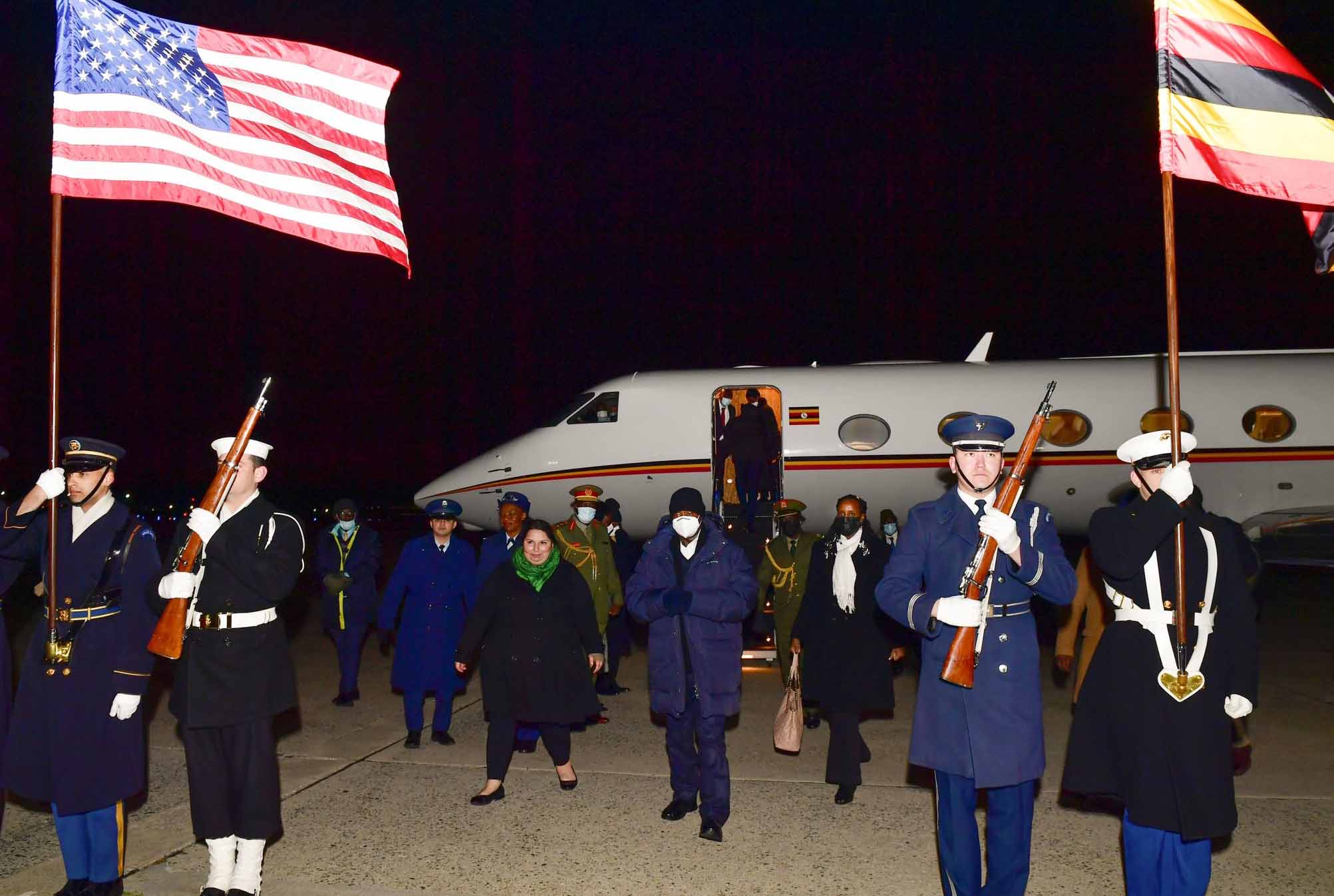Defense Secretary Lloyd Austin, at a panel with several African presidents at the start of the three-day summit, charged that US rivals had a different approach.
The summit also brought in NASA, with Nigeria and Rwanda becoming the first African nations to sign the Artemis accords, a US-led bid for international cooperation on traveling to the Moon, Mars and beyond.
![]()
Members of the National Guard block the streets near the Walter E. Washington Convention Center, the site of the US-Africa Leaders Summit that brings together leaders from across Africa to meet with US President Joe Biden and other US representatives, in Washington, DC, December 13, 2022. PHOTO/AFP
The Horn of Africa has been devastated by five consecutive failed rainy seasons, with Somalia already struggling after decades of turbulence and Al-Shabaab jihadist rebels.
"These climate shocks have weakened the society," Somali President Hassan Sheikh Mohamud said, ahead of expected announcements by Biden on climate efforts in Africa.
Democratic Republic of Congo President Felix Tshisekedi, in talks with Blinken, blamed climate change for floods that have killed some 100 people in the capital Kinshasa.
In Somalia, Mohamud also claimed successes against the rebels, days after Somali forces seized the key town held by jihadists since 2016 with the help of US air strikes and an African Union force.
But he warned that military means alone were insufficient.
"I have been telling my colleagues today that engaging with the society and the community is what makes these terrorists like a fish that has run out of water; they cannot exist without a community," he said.
The Biden administration has stressed working with the African Union, both on the security and diplomatic fronts.
Biden during a speech Wednesday is expected to outline US support for the African Union to gain a formal berth in the Group of 20 club of major economies, months after he threw support behind a permanent African seat on the UN Security Council.
African Union chief Moussa Faki Mahamat hailed US support but warned that there was still far more focus on fighting extremists in the Middle East.
"This double standard has had disastrous consequences for Africa and for peace and democracy in the world," he said.
The Artemis accords, which already include European allies, Japan and several Latin American powers, come as China rapidly expands its own lunar program and as tensions with Russia threaten its post-Cold War work with the United States on space.
China has rejected criticism of its role in Africa, with its ambassador in Washington, Qin Gang, saying the continent should not be a place for "major powers' competition."
In Beijing, Chinese foreign ministry spokesman Wang Wenbin told reporters on Wednesday that Washington "should respect the will of the African people and take concrete actions to help Africa's development, instead of concentrating its efforts on smearing and attacking other countries."
The US-Africa summit is the first since Barack Obama invited leaders in 2014, with his successor Donald Trump making no secret of his lack of interest in Africa.
Security remains a major focus of the United States, which has used the summit to focus on some of the continent's hotspots.
Ethiopian Prime Minister Abiy Ahmed, a onetime US ally whose relations with Washington soured sharply over the Tigray war that broke out two years ago, paid his first visit to Washington since the conflict.
Meeting him inside central Washington's convention center, Secretary of State Antony Blinken voiced hope over an agreement signed last month in South Africa between Ethiopia's government and Tigrayan rebels.
"We have, I think, a historic moment for the country," Blinken told him.
The United States also announced another $411 million in assistance for Somalia where a new assessment found "catastrophic" hunger, even though the United Nations said aid has averted a full-blown famine.



